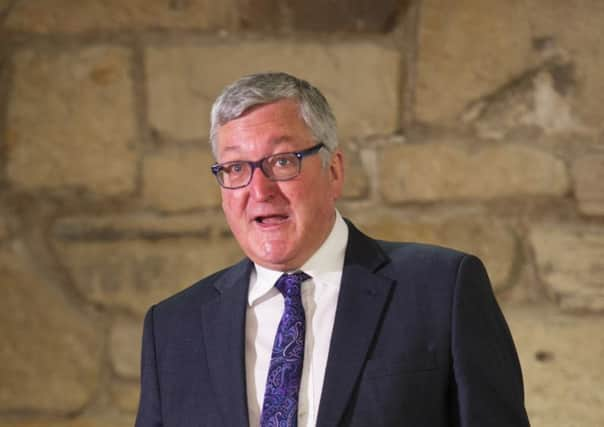Brexit ushers hidden harvest of agricultural news
This article contains affiliate links. We may earn a small commission on items purchased through this article, but that does not affect our editorial judgement.


For the small band of agricultural journalists, the next five – and more likely ten – years will bring a veritable feast of news stories. In farming terms, it will be like one never-ending harvest.
In the present sea of uncertainty with no Brexit plans prepared before the vote took place, there will be whole trailerloads to write about.
Advertisement
Hide AdAdvertisement
Hide AdThere is no agri hack smugness in stating the fact that, while the farming industry faces turmoil, uncertainty and change, the notebooks will be kept full with the multitude of as-yet unknown twists and turns brought on by the outcome of the referendum.
To give some indication of how much farming and the landscape could change and be reported after the EU exit is finalised, consider that Scotland currently receives somewhere between £450 million and £500m annually from Brussels in the form of common agricultural policy (CAP) payments. Scottish farmers receive an average of £25,000 each in single farm payments under the CAP.
Once out of Europe, any support cash will require to come through Westminster. This will come through the block grant, which is the funding system used to allocate Scotland’s share of UK’s taxation take.
It might be expected, but it is far from being guaranteed, that a different route for delivering the money will not see it unduly reduced. Any shrinkage would be yet another stone for the Scottish Government to sling at Westminster. This action alone could generate a plethora of articles.
It will be left to politicians north of the border to divvy up the block grant cash. With health, housing, policing, education and one hundred and one other Scottish Government priorities having to come from this pot how much will be left for farming and the countryside is open to considerable doubt and also boundless reportage.
All EU farm policies will be ripped up. There might be a new set produced for Scottish agriculture but there might not with complete freedom to farm being an option. There will be environmental schemes suitable for maintenance of the rural economy and remote areas of the countryside.
The environmental lobby organisations are not slow to push their views out into the press. As an example of how organisations are already trying to set the agenda for the future, the National Trust south of the Border made a plea last week that support cash in the future should go towards encouraging wild flowers and butterflies along with other environmental flora and fauna. For farmers, the worthy Dame at the head of the Trust somewhat innocently claimed food prices could be improved through negotiations with the major retailers. On productive farming, NFU Scotland has fought a tough, public battle with the Scottish Government in the past months over the failings of the payments computer. In doing so, some have even claimed it has held the Government to account more effectively than official opposition politicians in Holyrood.
This may prove not to have been a good battle to win as political memories are long and farming now has fewer friends in Government than it did previously. A public spat at last week’s Turriff show between the rural affairs minister, Fergus Ewing, and a senior union member dramatically highlighted this rift.
Advertisement
Hide AdAdvertisement
Hide AdWith agriculture a devolved subject there will be no need for Scottish policies to chime in with those of England and Wales, which already seem to be heavily predicated on protecting and promoting the countryside and not on productive farming.
While there is all this focus on Brexit from a writing point of view a sobering thought might be that if the economy goes down the plughole in the near future, the politicians might renege on pressing the Article 50 button that starts the whole revolution.
Dash it, those extra notebooks might not be needed after all.